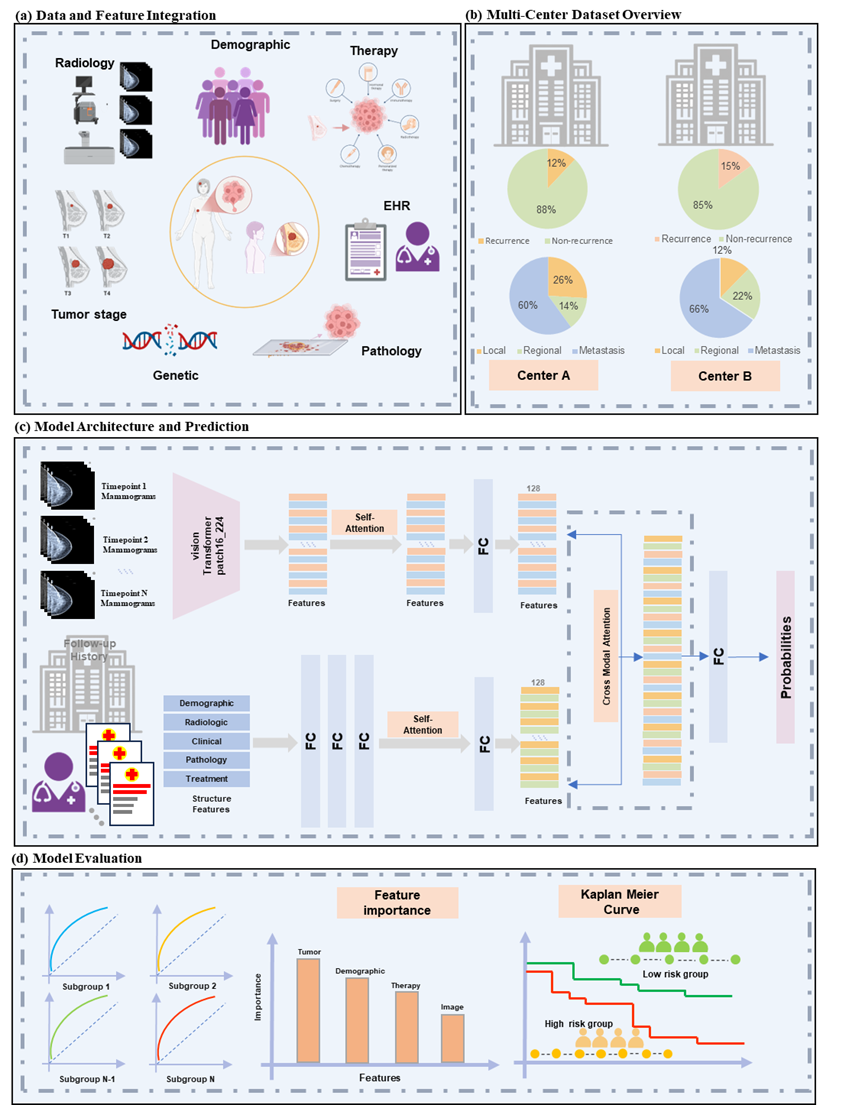Research
Recurrence prediction
Project 1. Recurrence prediction
Breast cancer recurrence remains a major challenge, significantly impacting patient survival despite advances in treatment and screening. Current predictive models often rely on single-omics data at a single time point, failing to capture the dynamic progression of the disease. This limitation underscores the need for a more comprehensive approach that integrates multi-modal and longitudinal data.
In this study, we developed MultiModalNet, a deep-learning model that integrates longitudinal mammograms and multi-omics clinical data to predict breast cancer recurrence. Unlike traditional models based on static imaging or clinical factors alone, our approach leverages time-series imaging and comprehensive clinical features to improve predictive accuracy. The model was trained on a large retrospective dataset of 3,188 patients and 18,079 examinations spanning two decades, then validated on two independent, ethnically diverse cohorts.
MultiModalNet significantly outperformed single-modality models, achieving an AUC of 0.802 in the internal validation cohort. In an external validation cohort of 821 patients, it demonstrated robust generalizability with an AUC of 0.651. Furthermore, we analyzed key tumor-related, demographic, and treatment factors influencing recurrence risk, providing critical insights into the biological and clinical drivers of breast cancer recurrence.
By integrating multi-modal and longitudinal data, MultiModalNet represents a novel, AI-driven tool for personalized recurrence prediction, enabling more accurate risk stratification and optimized follow-up strategies. This approach supports precision oncology by assisting clinicians in early recurrence detection, improving treatment planning, and ultimately enhancing patient outcome.

